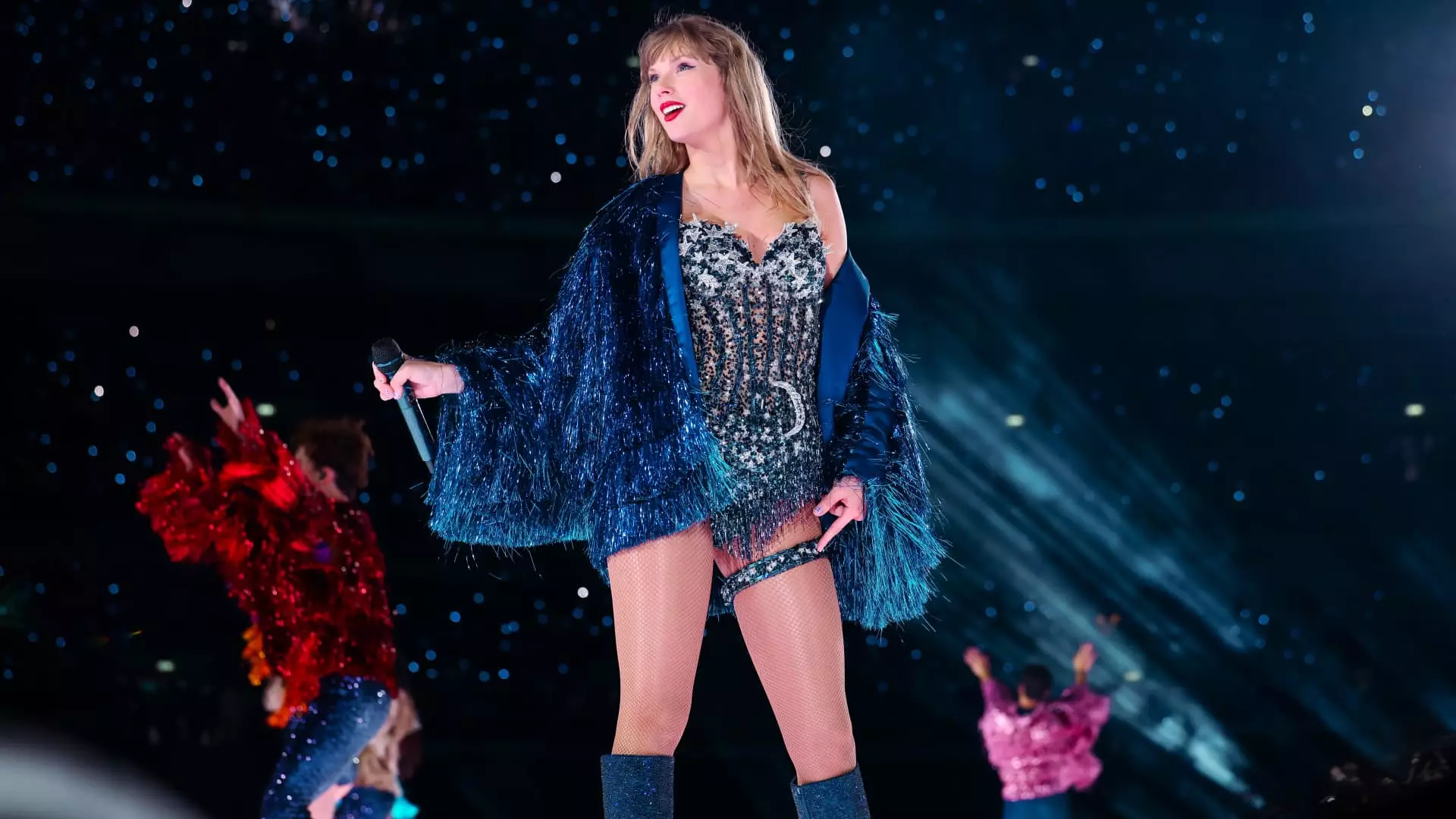The political landscape of the United States continues to intertwine with pop culture, creating a complex arena where celebrity influence can sway public opinion. This dynamic was highlighted recently when former President Donald Trump directed his ire towards pop icon Taylor Swift after she publicly endorsed Vice President Kamala Harris. The incident underscores how social media can amplify political disputes, especially when they involve well-known figures from different spheres.
Taylor Swift’s endorsement of Harris, made via an Instagram post shortly after a pivotal presidential debate, emphasizes the rising trend of celebrities using their platforms to influence political narratives. In her heartfelt message, Swift characterized Harris as a “steady-handed, gifted leader,” positioning her endorsement as not just a personal sentiment but a call for a more stable political environment. Swift’s mention of being a “childless cat lady” cleverly referenced derogatory comments from Republican vice presidential candidate JD Vance, indicating her awareness of the misogynistic undertones in political rhetoric.
Such celebrity endorsements can be a double-edged sword. While they can energize a candidate’s base and encourage young voters to engage with the political process, there is always skepticism about the depth of impact these endorsements have. For instance, Swift’s endorsement drove over 300,000 visitors to Vote.gov the day after her announcement. However, one must question whether this increased traffic translates into tangible votes or sustained political activism among her fans.
The Backlash and the Political Response
Trump’s explosive reaction—“I hate Taylor Swift!”—broadcast on Truth Social, paints a vivid picture of the cultural clash at play. His hyperbolic expressions are common in his political style, which often seeks to delegitimize opponents through sensationalism. By aiming criticism at a pop star, Trump attempts to tap into a narrative that resonates with his supporters, framing himself as an outsider resisting the elite class of entertainers and politicians.
In response, the Harris-Walz campaign adeptly incorporated Swift’s musical references into their statement, signaling a strategic alignment with popular culture. Sarafina Chitika, the campaign spokesperson, skillfully employed language and themes from Swift’s music, indicating an understanding of the crossover appeal celebrity endorsements can generate. The messaging that “the American people want to be out of the woods” cleverly utilizes Swift’s discography, showcasing how intertwining cultural elements can fortify a political campaign.
Social media serves as an arena for real-time debate, where celebrity appeals can wield significant influence. However, the efficacy of such endorsements is still disputed. Critics argue that celebrity endorsements may not fully resonate with core political issues or directly affect electoral outcomes, raising concerns about the superficial nature of such engagements. The reliance on pop culture icons to convey political messages could lead to a dilution of serious discourse, potentially overshadowing critical policy discussions.
However, the event signifies a shift towards blurring lines between entertainment and politics, compelling both parties to adjust to a new normal where every tweet, post, or public statement could impact the electoral landscape. The reality is that these interactions are not fleeting moments but rather indelible parts of a broader cultural conversation that shapes how the electorate engages with politics.
The encounter between Donald Trump and Taylor Swift illustrates the continuing evolution of political communication in an era dominated by social media and celebrity culture. The implications of such encounters extend beyond individual personalities, challenging how candidates engage with voters and how political narratives are constructed and deconstructed in the public eye.


Leave a Reply